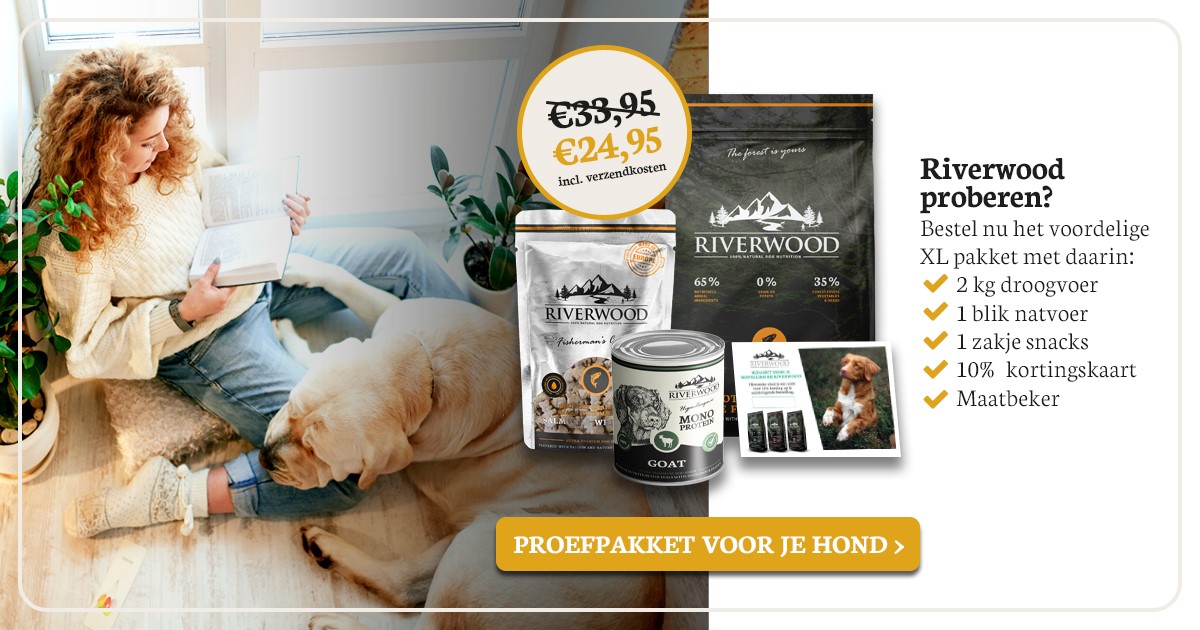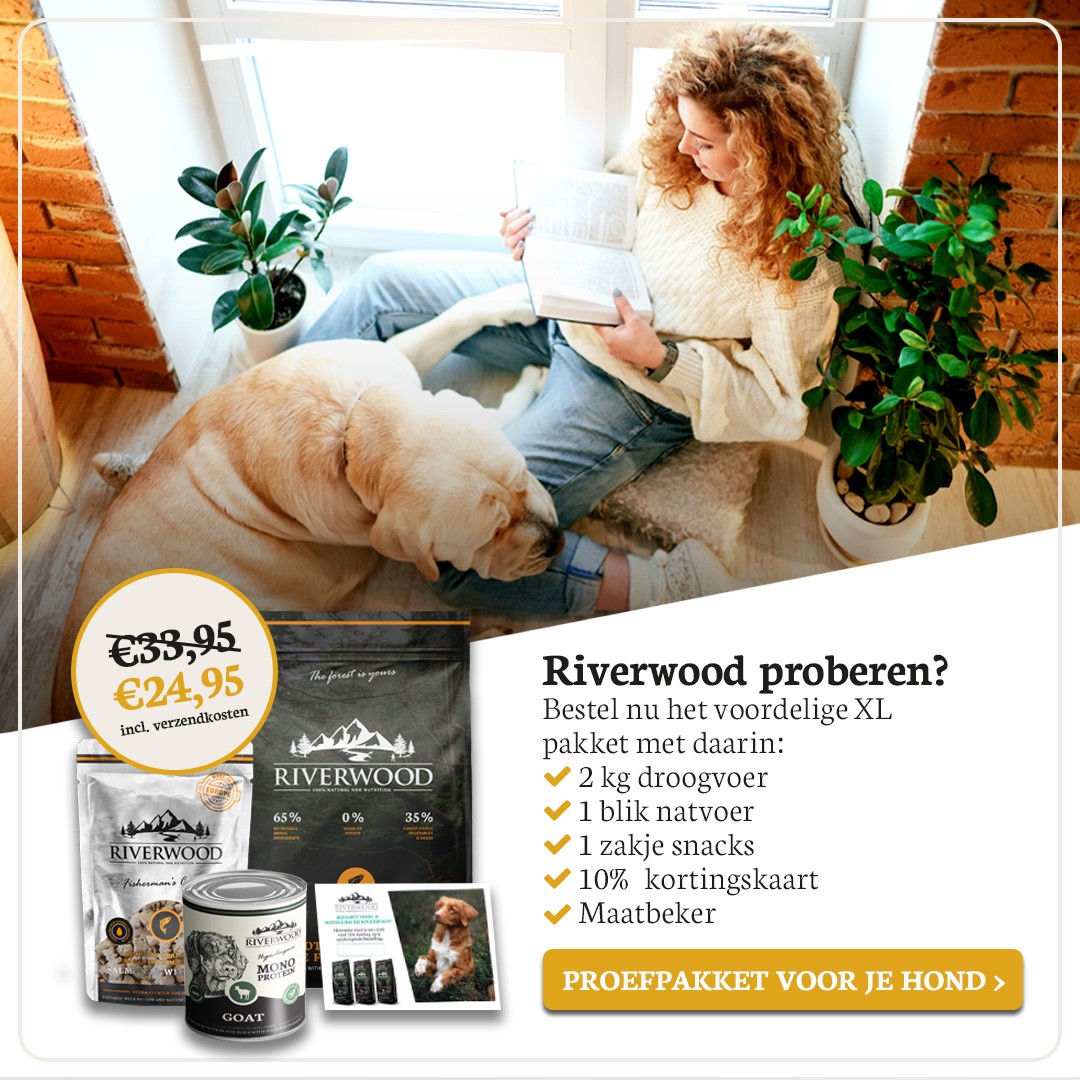Why is my dog drooling?
We often associate drooling with a hungry dog who has his eyes on his food bowl of tasty food. Although some dogs drool more than others, excessive drooling in a healthy dog is not the way to go. Does your dog suddenly drool more than he normally does? If so, it should ring a bell. In the blog below, learn more about different causes of drooling and how to prevent excessive drooling.

Do all dogs drool?
Whether your dog drools at the sight of something tasty or when he is very hot; most dogs drool. Consequently, this is quite normal. Drooling occurs when too much saliva accumulates in the dog's mouth and it runs out between the lips. However, some dogs drool more than others. Some breeds (especially larger dog breeds with large cheeks and hanging lips) are known to drool more than other breeds.
Does your dog drool more than he normally does? If so, that could mean there is an underlying problem. It is important to find out where the excessive drooling is coming from and, if it has a medical cause, address the problem.
What can cause excessive drooling?
Possible causes of excessive drooling in your dog are:
- Dental disease; for example, gingivitis (inflammation of the gums), periodontitis (inflammation around the teeth), a buildup of tartar on the teeth, a broken tooth and decayed teeth.
- A foreign object such as a piece of plastic or wood stuck in the palate or between the teeth.
- Nausea; when a dog feels sick, it may start drooling excessively. This is usually accompanied by vomiting and a decreased appetite. Car sickness can also be a cause of nausea.
- A mass in your dog's mouth; this could be a tumor or a benign growth such as a gum pimple or wart.
- Toxins; some toxins (for example, from (house) plants, toads or autumn fruits) can cause a sudden and marked increase in drooling.
- Mouth sores can also cause a dog to drool considerably. These occur, for example, because a dog has eaten something he should not have or because of an illness such as kidney failure.
- Finally, stress can be a cause of excessive drooling.
Continue reading under the block
Curious? Check our products
Other causes of dental disease in dogs
Most dog owners assume that a dog will stop eating when something is wrong with his teeth. Unfortunately, this is rarely the case. Most dogs, despite experiencing great discomfort, will continue to eat. A dog's appetite may diminish, however, and a dog may abandon hard kibble, but be willing to eat wet food, for example.
In addition to a change in appetite and excessive drooling, there are other symptoms that may indicate dental disease in your dog. Discolored teeth, smelly breath, slower eating, bright red gums or chewing on one side of the mouth are examples of these symptoms.
What should I do if I suspect my dog has dental disease?
If you suspect that your dog has dental disease it is important to make an appointment with the veterinarian as soon as possible. A veterinarian can do a dental exam so he can determine if the dog has dental problems. These examinations often take place under sedation or anesthesia. X-rays of the teeth may also be taken.
After the diagnosis is determined, it is important that a dental condition be treated quickly. Often, treatment consists of a professional dental cleaning where plaque and tartar are removed from under the gums. If necessary, loose/rotten teeth are also pulled.
In addition to the dental cleaning or surgical procedures, antibiotics, painkillers and/or anti-inflammatories may be required.
How can I prevent dental disease in my dog?
Although some dogs have a higher risk of developing dental disease (especially older dogs, short snouted dogs and small dogs), you can significantly improve your dog's dental health by following a few simple steps:
- Brush your dog's teeth regularly with a soft toothbrush and special dog toothpaste. Start this at an early age so your dog can get used to brushing his teeth.
- Have your dog's teeth checked regularly by a veterinarian and have them cleaned as needed.
- Consider feeding hard kibble instead of wet food. Riverwood has a wide range of hypoallergenic, crunchy dry foods. View our range of dry foods here.
- Give your dog a chewy snack on a regular basis. A snack that requires the dog to chew for an extended period of time will help scour plaque from the teeth. Check out our assortment of natural chew snacks here.
Prevention is always better than cure. With the above tips for daily dental care, you can save high vet costs and make sure your dog gets and keeps radiant teeth!
.









